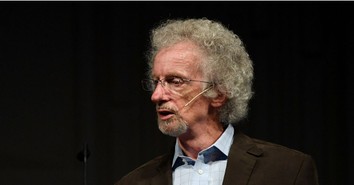Planned Giving Offers You Flexibility

Planned gifts are typically in some form other than cash and are usually relatively large gifts. Recipient organizations usually use planned gifts to meet their future needs, such as for capital improvement projects and endowments.
Be creative as you consider all your available resources for giving. You can give stocks, bonds, treasury bills, mutual funds, promissory notes, royalties, life insurance policies, land, buildings, cars, boats, jewelry, art, furniture, clothing, timber, livestock, gifts in kind from manufacturers or retailers, or professional services (such as transportation, tax preparation, catering, medical care, and legal advice).
Also try to be innovative as you consider flexible ways to donate, many of which can offer you benefits that can enable you to donate significant amounts to help a particular organization. Some potential benefits of planned giving include allowing you to take a charitable income tax deduction, minimize capital gains taxes, reduce estate taxes, or receive an annual income for the rest of your life.
Here are some of many planned giving options that you can consider when making a donation:
- Outright gift of appreciated property. You transfer stock that has increased in value to an organization.
- Bargain sale. You sell an organization some real estate that has appreciated greatly since the time you bought it, but when you sell it to the organization, you only charge the price you originally paid.
- Charitable remainder trust. You establish a trust for an organization and transfer stock to that trust, retaining a certain percentage per year as annual income for yourself or a beneficiary. After you or a beneficiary die, the trust assets pass completely to the organization.
- Gift annuity. You transfer stock to an organization in exchange for the organization's agreement to pay a specified annuity to you, either starting immediately, or sometime in the future (such as after retirement), for the rest of your life.
- Remainder trust in residence. You transfer a residence an organization but retain the right to live in that home for life.
- Life insurance. You name an organization as the beneficiary of an insurance policy.
Adapted from Planned Giving Essentials: A Step-by-Step Guide to Success by Richard D. Barrett and Molly E. Ware, copyright 2002 by Aspen Publishers, Inc., Gaithersburg, Md., www.aspenpublishers.com, 1-800-638-8437.
Richard D. Barrett is president of Barrett Planned Giving, Inc., a consulting firm that provides marketing, coaching, and telephone donor consulting services to a wide range of not-for-profit organizations. Molly E. Ware, CFRE, Principal of Ware Development Consulting, specializes in donor-centered, integrated fundraising, board development, and coaching services to the not-for-profit community.
Have you ever made any planned gifts to churches, charities, or other organizations? What type of planned gift(s)? Why did you choose to donate in that way? Did it work well for you? Why or why not? Visit Crosswalk's forums to discuss this topic by clicking on the link below.
Originally published June 03, 2002.







